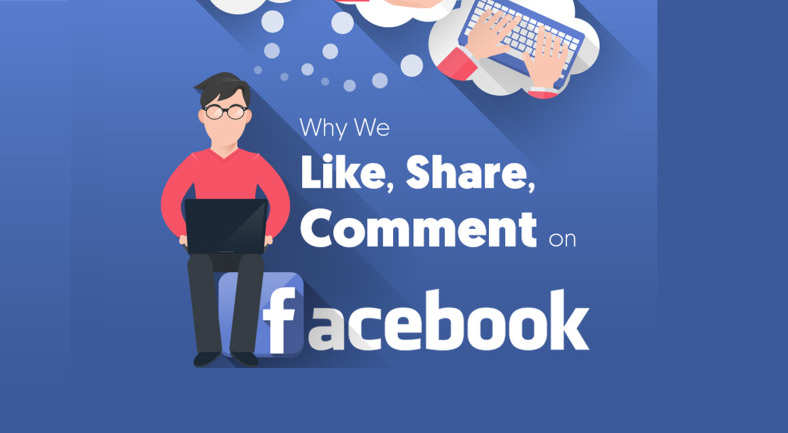It’s all based on science
There is a great deal of psychological science involved in our Facebook experience. We don’t just share, post, and like on Facebook for the fun of it. Have you ever noticed that you feel good when someone likes your comment or post, and even better when someone comments, or shares it? According to Dar Meshi, lead author of the first study looking at how brain activity was linked to social media, he explains:
“As human beings we evolved to care about our reputation. In today’s world, one way we are able to manage our reputation is by using social media”.
The area of the brain called the nucleus accumbens which is responsible for rewarding feelings about food, sex, money and social acceptance. Also has a strong connection with our Facebook use. Positive feedback on our Facebook feeds lights up this part of our brain like fireworks on Chinese New Year, the more intensity in our Facebook engagement, the greater reward from our pleasure center. I guess you can say we are social media hedonists.
Why we like, share, and comment
Liking a post lets us share solidarity or agree with a cause or friend. It can give us a warm feeling of acceptance, and help us share our empathy virtually, helping us also identify with ourselves. Our likes also determine with startling accuracy, what our ethnicity, sexual orientation, or political affiliation is. It’s also practical and can give us rewards like rebates, updates, and coupons from our favorite brands, or organizations.
Where the liking is a silent nod or the easiest of yesses, the comment is a vocal response. Moira Burke is studying 1,200 Facebook users in an ongoing experiment and has found that personal comments satisfy receivers more than the one-click like. Coining the term “composed communication”, she found that users have more decreased feelings of loneliness when their friends commented on their posts, whereas one-click communication’s received no response in feelings of loneliness.
Sharing lets us spread the message. According to a study conducted by Ipsos:
- 61% of users share interesting things
- 43% share important things and also funny things
- 37% share their beliefs and who they are
- 30% share a product or service
What does it mean?
So what this all boils down to is that there is a method to the madness, and it is closely related to our brains, and social function. We are not just automatically drawn to Facebook like a moth to a flame. Social media is the evolutionary next step in our social infrastructure, replicating our social behavior virtually, an extension of who we are. It is only natural that using Facebook entails psychological processes.
TL;DR version:
John Linneman is a Portland, Oregon native who owns and operates small digital marketing business. He went to school at Portland State where he studied business, and writing. He majored in writing and theater at PSU, and still holds these things true, but has since moved on and transferred his talents to the business, and marketing world. Connect with him on Twitter or on his blog.











































Pingback: Facebook frustrating marketers yet again with new feature (why Likes aren't enough anymore) - The American Genius
Pingback: I Post A Lot Of Selfies